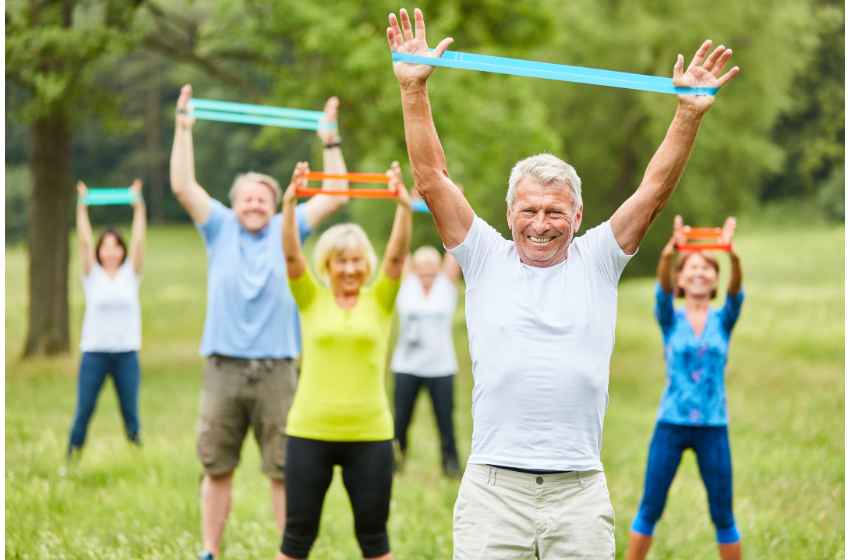In recent years, sustainability has become more than just a buzzword. People are increasingly aware of how their lifestyle choices impact the planet, and many are looking for ways to reduce their environmental footprint. Similarly, more people are taking responsibility for their own fitness. The good news is that aligning fitness goals with eco-conscious living it is easier than ever.
Fitness, often viewed solely as a personal health pursuit, plays a surprisingly important role in building a sustainable lifestyle. As this article shows, with a little additional consideration, integrating physical activity into daily life not only benefits the individual but also contributes to a more eco-conscious way of living.
Physical Activity and Sustainable Choices
One of the simplest ways fitness aligns with eco-conscious living is through transportation. Walking, cycling, and even running for errands reduce reliance on vehicles, cutting down carbon emissions. Incorporating these activities into your routine doesn’t just improve cardiovascular health; it also lowers your environmental impact.
Choosing to cycle or walk instead of driving is a small step that can collectively make a significant difference for the planet.
Beyond transportation, being fit encourages other sustainable habits. Individuals with higher energy levels are more likely to cook meals at home, choose fresh ingredients, and reduce consumption of processed foods. Home-cooked meals often involve less packaging, less food waste, and fewer emissions compared to takeout or ready-made options. Fitness can therefore indirectly promote environmentally friendly dietary choices, supporting both personal and planetary health.
Outdoor Fitness and Connection to Nature
Exercising outdoors is another way that fitness intersects with sustainability. Activities like hiking, jogging, and outdoor yoga foster a deeper connection with the natural environment. When people spend time immersed in nature, they often develop a stronger motivation to protect it. Regular exposure to green spaces has also been linked to improved mental health, reinforcing the idea that sustainable living includes not just physical well-being but emotional balance as well.
According to Professor Jules Pretty, even a five-minute dose of nature provides immediate wellbeing benefits.
Moreover, outdoor fitness activities generally require little to no equipment. By reducing reliance on manufactured gym machines and disposable fitness products, individuals can minimize their consumption footprint. Simple activities such as running, bodyweight exercises, or park workouts can be highly effective, demonstrating that sustainable fitness doesn’t require excessive resources.
Mindful Consumption and Fitness Gear
Fitness often comes with its own set of products: clothing, shoes, and equipment. Choosing durable, ethically produced items can make your fitness routine more sustainable. Opting for quality over quantity reduces waste and supports environmentally responsible companies.
Even small decisions, like selecting a reusable water bottle or energy-efficient home equipment, align fitness with sustainability principles.
Sustainable fitness also extends to energy consumption. For example, home workouts using minimal electronic devices or gyms powered by renewable energy contribute to a lower carbon footprint. By considering these factors, fitness enthusiasts can make choices that reflect their commitment to a sustainable lifestyle without sacrificing performance or results.
Personalised Fitness and Long-Term Impact
Working with a professional can make sustainable fitness practices more effective. For example, this Edinburgh city personal trainer can help design a personalised plan that maximises results while minimising unnecessary equipment or resource use.
Personalised guidance ensures that individuals stay motivated, avoid injury, and develop routines that can be maintained for years, which is crucial for long-term health and sustainability.
Conclusion
Ultimately, aligning fitness goals with eco-conscious living is multifaceted. It encourages sustainable transportation, supports mindful consumption, promotes outdoor engagement, and fosters habits that benefit both body and planet.
By integrating fitness into daily life thoughtfully, individuals can contribute to a healthier world while improving their own quality of life.
Sustainable living is no longer just about what we eat or how we travel—it’s about building strength, resilience, and awareness in every aspect of life.
#Aligning #fitness #goals #ecoconscious #living



